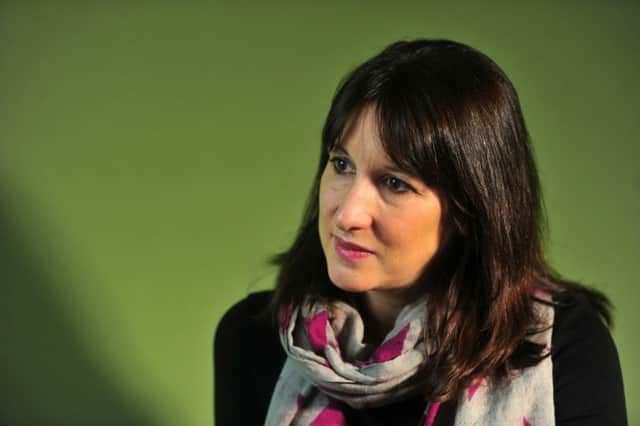Greg Wright: The terrible gender imbalance on committee that shapes our fate


You don’t have to take my word for it. Just look at the colossal gender imbalance on the powerful Bank of England committee that sets interest rates.
Eight of the nine people who sit on the Bank’s Monetary Policy Committee are men. It’s unsurprising that Rachel Reeves, the Yorkshire MP who chairs the Business, Energy and Industrial Strategy Select Committee, hit the roof when she saw that the latest addition to the committee was a man.
Advertisement
Hide AdAdvertisement
Hide AdFour women had been on the shortlist for the role but, apparently, weren’t quite good enough to make the grade. Ms Reeves immediately accused the Government of only choosing from half the gene pool.
I’m not questioning the ability of the men who currently make up most of the MPC. But it beggars belief that the current committee - with just one female appointment - can speak for the diverse range of interests that should shape monetary policy as we enter one of the most uncertain periods in recent British history.
As Ms Reeves observed, the Bank might make smarter decisions if it simply broadened its outlook.
Ms Reeves’ opinions carry weight because she is a former Bank of England economist and, as an insider, she will know many of the talented women who are being denied a place at the top table. Ms Reeves said she wanted the Government to recruit, promote and mentor more women. She said the Government must make sure there is a pipeline of talented women and then hire them.
Advertisement
Hide AdAdvertisement
Hide AdThis was her common-sense message: “Don’t just appoint people who look like those already doing the job. This was a Treasury appointment but both the Bank and the Treasury need to do more.”
In response, the Treasury said it was committed to diversity and encouraging the broadest range of candidates.
A spokesman said: “We actively contacted 44 women to apply for this role. Eighty per cent of those interviewed were women and the majority of those on the interview panel were women. The final appointment decision was based on merit.”
It’s good to see that the Treasury is so committed to diversity and is reaching out to female candidates. But how successful can a diversity policy be if it results in the formation of a powerful committee that is almost exclusively male?
Advertisement
Hide AdAdvertisement
Hide AdThe only possible defence - and it’s a pretty feeble one - is that this flawed recruitment policy is simply reflecting a broader problem. It’s just a lot harder to gain attention as an economist if you happen to be a woman.
A recent study found evidence that female economists’ papers can take six months longer to peer review in leading journals than papers submitted by their male counterparts.
To quote the report’s author, Erin Hengel: “Academia’s female productivity gap is as stubborn as the business world’s pay gap; yet, if every paper a woman writes needs six more months to finish review, our ‘publishing paradox’ seems much less paradoxical.”
When female authors endure unfair criticism in referee reports, clearer writing and longer review times follow, according to Ms Hengel‘s study
Advertisement
Hide AdAdvertisement
Hide AdWith less time to spend on new projects, their research output slows down.
Ms Hengel concludes: “This paper makes a curious discovery: female-authored articles in top economics journals are better written.”
She argues that higher standards are being demanded of female academics by editors and referees. So if female economists are better writers, and blessed with greater clarity of thought, why do so few of them get a place on the MPC?
As Sir Philip Hampton, who conducted a review of gender balance for the Government, observed: “Given the disproportionate number of men to women in senior roles, business should question the soundness of their meritocracies.”
We may like to believe that all selection processes are based purely on merit. But there are insidious forces at work and they are causing lasting harm to UK plc.